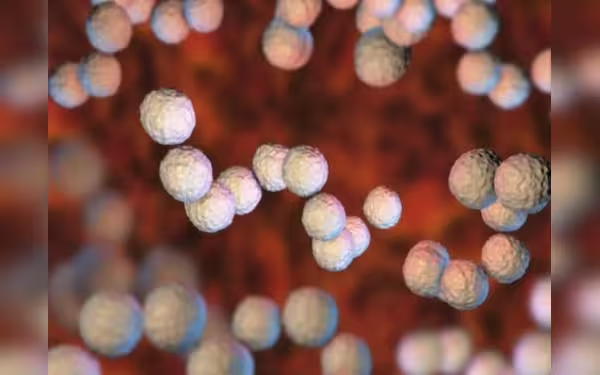Sunday, July 7, 2024 11:03 AM
Japan Ministry Warns of Rising STSS Cases
- STSS cases in Japan surpass previous year's total, reaching 977 by June 2
- Early detection and treatment crucial to prevent fatalities from STSS
- Experts emphasize importance of hygiene practices to curb STSS spread
 Image Credits: tribune_pk
Image Credits: tribune_pkJapan faces a surge in streptococcal toxic shock syndrome cases, urging vigilance for symptoms and emphasizing the critical role of hygiene practices in preventing the spread of this severe bacterial infection.
Japan has experienced a concerning rise in cases of streptococcal toxic shock syndrome (STSS) during the first half of 2024. STSS is a severe bacterial infection caused by group A Streptococcus (GAS), specifically Streptococcus pyogenes, known for its aggressive nature. By June 2, the number of reported STSS cases had already surpassed the total for the previous year, reaching 977 cases. Experts warn that this number could escalate to 2,500 by the end of the year.
STSS poses a grave threat as the bacteria can swiftly invade deep tissues and the bloodstream, releasing toxins that trigger a dangerous response in the body. The rapid progression of the illness underscores the critical importance of early detection and treatment to prevent fatalities.
The Japanese Ministry of Health, Labor, and Welfare has issued a public alert urging vigilance for symptoms like fever, chills, nausea, vomiting, diarrhea, and skin abnormalities, which may indicate the presence of STSS. The transmission of the bacteria occurs through respiratory droplets, direct contact, and contaminated food, emphasizing the need for stringent hygiene practices.
Individuals with open wounds, recent surgeries, or viral infections are at higher risk for STSS. While the exact mode of entry for the bacteria remains unclear in many cases, health experts stress the significance of preventive measures such as regular handwashing, proper wound care, and prompt medical attention for any signs of infection.
Investigations are ongoing to understand factors contributing to the surge in STSS cases, including changes in bacterial strains, environmental influences, and human behavior. The public is advised to prioritize good hygiene practices, including thorough handwashing and safe food handling, to mitigate the risk of infection. The World Health Organization (WHO) is closely monitoring the situation in Japan and emphasizes the rarity of STSS outside specific risk groups, highlighting the importance of maintaining hygiene standards to curb bacterial spread.
As Japan grapples with a spike in STSS cases, it is crucial for individuals to remain vigilant and prioritize hygiene practices to safeguard against this potentially life-threatening infection. By staying informed, practicing good hand hygiene, and seeking timely medical assistance when needed, the community can work together to combat the spread of STSS and protect public health.













